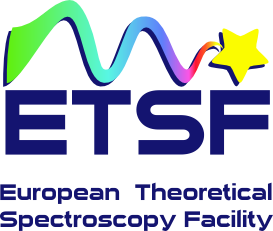Bio
I obtained my Master's degree in Theoretical Physics with first-class honours from the University of York in 2012, where I remained to complete my PhD under the supervision of Prof. Rex Godby. My thesis, Electrons in Model Nanostructures, was awarded the K. M. Stott Prize for excellence in scientific research. From 2016 to 2019, I held a postdoctoral research position at the Max Planck Institute of Microstructure Physics in Halle, Germany, working with Prof. Eberhard Gross, followed by a position at Durham University with Dr Nikitas Gidopoulos.
Since 2021, I have been a Lecturer at the University of York, where I teach theoretical and computational physics. I hold several academic roles, including serving on the Standing Academic Misconduct Panel for the Faculty of Sciences and as the Machine Learning Academic Theme Lead for the N8 Centre of Excellence in Computationally Intensive Research. I am also a member of the Institute of Physics, the EPSRC Peer Review College, and the European Theoretical Spectroscopy Facility (ETSF).
Career
- University of York, School of Physics, Engineering and Technology, York, UK
- Lecturer (2024-present)
- Associate Lecturer (2021-2024)
- Durham University, Department of Physics, Durham, UK
- Postdoctoral Researcher (2019-2021)
- Max Planck Institute of Microstructure Physics, Theory Department, Halle, Germany
- Postdoctoral Researcher (2016-2019)
Academic Roles
- N8 Centre of Excellence in Computationally Intensive Research
- Machine Learning at the University of York, Academic Theme Lead (2025-present)
- University of York
- Standing Academic Misconduct Panel for the Faculty of Sciences, Member (2023-present)
- Careers and Employability, Coordinator (2023-present)
- Virtual Learning Environment, Coordinator (2021-present)
Memberships
- Engineering and Physical Sciences Research Council (EPSRC) Peer Review College (2024-present)
- Royal Society of Chemistry (2020-2022)
- University College, Durham University (2019-present)
- European Theoretical Spectroscopy Facility (ETSF) (2012-present)
- Institute of Physics, Member (2016-present); Associate Member (2008-2016)
Education
- University of York
- Postgraduate Certificate in Academic Practice (2024-present)
- Doctor of Philosophy in Physics (2012-2016)
- Master of Physics in Theoretical Physics with first-class honours (2008-2012)
Research
My research focus is many-body quantum mechanics, with an emphasis on modelling how electrons are excited in materials. I am a lead author of the iDEA code, a Python library for exploring and understanding many-body quantum systems. With iDEA, I identify limitations in widely used models based on the most popular approaches to quantum mechanics, such as density functional theory and many-body perturbation theory, and propose strategies to improve their accuracy and predictive power.
Electron excitation
Kohn and Sham's approach to density functional theory is the most popular method in materials science; however, it is notoriously unreliable for calculating electron excitation properties.
Electron dynamics
Modelling the response of electrons to an applied electric field remains a challenge; yet determining the flow of charge through a material is crucial for the design of molecular junctions.
Electron emission
Many-body perturbation theory is commonly used to calculate the spectral function; however, increasing the accuracy of this approach is challenging owing to the computational cost.

